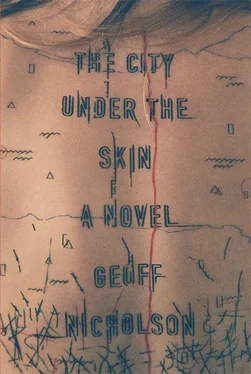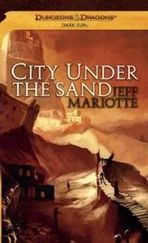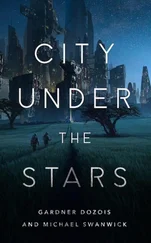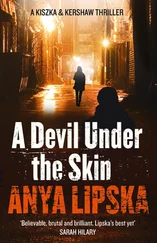He blamed his mother. Why not? Anyone would. Everybody does. She was the one who made a man of him. And sure, his father played a part, did things to the mother that made her do things to the son, but Dad wasn’t around much, and then he wasn’t around at all. She decided the son wouldn’t be like the father. She didn’t have specific ambitions for him, none of the familiar, self-serving hopes for success, money, a good wife. She just didn’t want him to be a weak, useless man like his dad. That was her special project, to turn her boy into a little tough guy: after that he’d be on his own. Was it tough love? Well, it was certainly tough.
It went pretty well. The boy didn’t resist. He learned not to be soft. He learned that if he got into trouble, he had to get himself out of it. He liked the karate classes, the playground scuffles. He wasn’t the biggest, wasn’t the most volatile, but when it came to it, he was the meanest. The little boy in him started to fade away.
His mother wasn’t such a bad bitch, he would decide long after the event. She did what she thought she had to do. And gradually her project became more refined. Later, when he tried to work out exactly how old he was when it first happened, he couldn’t. It seemed to have been going on forever, seemed always to have been a part of his life, so it must have started when he was what? Eight years old? Six? Was that possible?
They were in the car. Mother and son traveling fast, no seat belts, no conversation. He figured she’d been drinking. They’d been on an errand on the other side of the city, buying something, selling something, delivering something, and they were coming back through a neighborhood he’d been in before, though not often — crowded streets, rough at the edges, poor but striving, and still a good way from home — when suddenly she pulled the car over and said, “All right, time to get out.”
He wondered what he’d done wrong. His mother was an angry woman at the best of times. Anything might cause her to get mad: something somebody said to her, something she saw on TV, though more often than not it was his doing. But this time he was pretty sure he hadn’t done anything wrong, and she didn’t sound angry at all, which was even more scary.
“We’re going to make a man of you,” she said. “Get out of the car. I’ll see you when you’ve found your way home.”
She almost made it sound natural, like the kind of thing all mothers and sons might do, something that could be fun, a game, though since he was the only one playing it, he couldn’t be sure about that.
“All right,” he said, because no other reply was possible, and he got out of the car. He was still hoping, well, fantasizing more than hoping, because he knew how unlikely it was that she’d smile and say forget it, it was a joke, a test, that she was trying to make sure he wasn’t a crybaby, which he wasn’t. But he stood in the street and watched as his mother yanked the car door shut and drove away. She didn’t wave goodbye.
He remained on the sidewalk, alone, dry-eyed, a long way from home, and he knew that in some sense he’d always be that way. He’d find his way back home all right. Of course he would. He knew his address, had a little money in his pocket and a tongue in his head, he could ask people the way, he could walk, he could get on a bus. He’d be just fine. And anticlimactic though it felt, he was fine. He got home soon enough, without incident that time, and without much fear, and he supposed his mother was pleased to see him, though she didn’t show it. A week later she did it again, and again the week after that, again and again, dropping him off in ever more distant, dubious, and unfamiliar parts of the city.
He thought of buying a map and hiding it — his was the kind of home where it wasn’t hard to hide things — but he didn’t, because somehow that would have been cheating. And naturally he got lost once in a while, but never completely lost, and eventually he never got lost at all. Wherever he was in the city, he belonged there. And even if he couldn’t have told you the name of the street or the neighborhood he was in, it was only a matter of taking certain bearings, tuning into the geography, feeling the contours of the city, noting the direction of the light, the angles of the skyline, and then he knew exactly where he was: right at home.
And as he walked he looked . He observed the various changing natures of the city, the characteristics of neighborhoods and communities, how people lived and why they lived that way, together or separately, in houses and hovels, in apartment blocks and tenements, richly or desperately, with dignity or defeat. He saw the clustering of life, of separate fates, the back and forth, the aggressions, the forms of symbiosis and parasitism, the flow, the exchange, the business. And although he was just a kid, and although he couldn’t quite understand it all, and certainly couldn’t have articulated what it meant, he knew that he wanted to be a part of it, and at the top of it, and that sooner or later he would be.
Increasingly he saw no reason to hurry back to his mother. He began to get into trouble, to make trouble for himself. It toughened him even more, and he reckoned that was the plan too. This wasn’t an exercise in keeping a clean nose. It was about taking the long way home, digging himself into holes, then digging himself out, deciding what needed to be done, surviving, flourishing.
Trouble came in different forms. There was the obvious stuff that he couldn’t help doing: minor theft, shoplifting, a bit of pickpocketing. He learned a lot from it, especially about the separation of cause and effect, the unpredictable nature of consequences. He’d go into a store and lift half a dozen CDs, or go into a comic-book store and steal as much as he could hide under his coat, and despite the cameras and the alarms and even the security guards, he’d get away with it completely. Other times he’d take a single apple from a market stall and find himself chased halfway around the neighborhood by some deranged stallholder. This was useful knowledge.
Adults were less of a problem than other kids. A boy on his own, even a tough-looking little kid, not from the neighborhood, that was an affront that couldn’t go unchallenged. He had to be taught that he was in the wrong place. He was yelled at, taunted, tripped up, shouldered off the sidewalk, told to hand over his money. He always made them regret it. It wasn’t that he always won the fights, yet somehow he had the knack of always making them feel like they’d lost. And when he had to, he ran. He saw no shame in running, and he wasn’t a bad runner, though he knew he had his limits.
He found those limits one afternoon when he was thirteen years old. It happened on a bleak winter day, huddling under a furred gray sky, with the threat of snow in the air, and there on a corner were five kids who looked like fair game. They were foreign, very foreign, skins purple black, wearing the wrong clothes. They seemed out of place, and they’d have seemed out of place anywhere in this city. They were improbably tall, elongated, their limbs seemed to have too many segments. They were standing against a graffiti-tagged bus shelter, slouching, heads hanging, and still they towered above him: even so, he just couldn’t walk past without doing or saying something.
Afterward he wondered if maybe they were young marathon runners in exile, but at the time that didn’t seem very likely: they were smoking hand-rolled cigarettes. And as he walked by them, he said, couldn’t help saying, “Hey, boys, don’t smoke. It’ll stunt your growth.” And really, how bad a thing was that to say? But they reacted as if he’d said something filthy about their mothers.
Читать дальше












